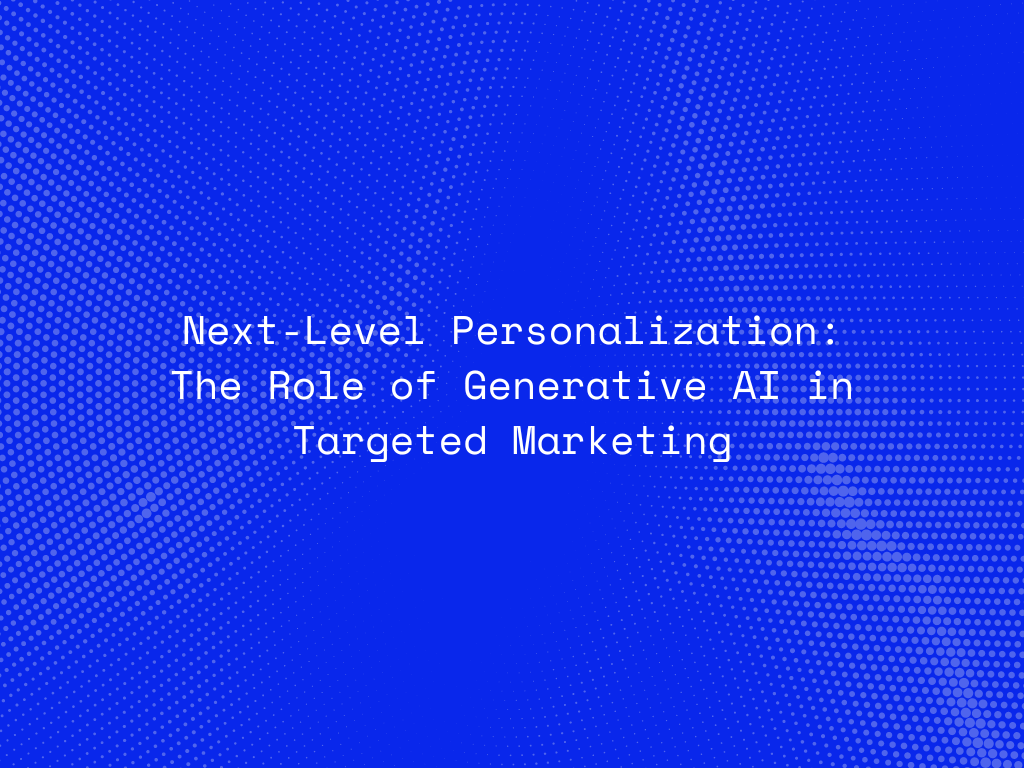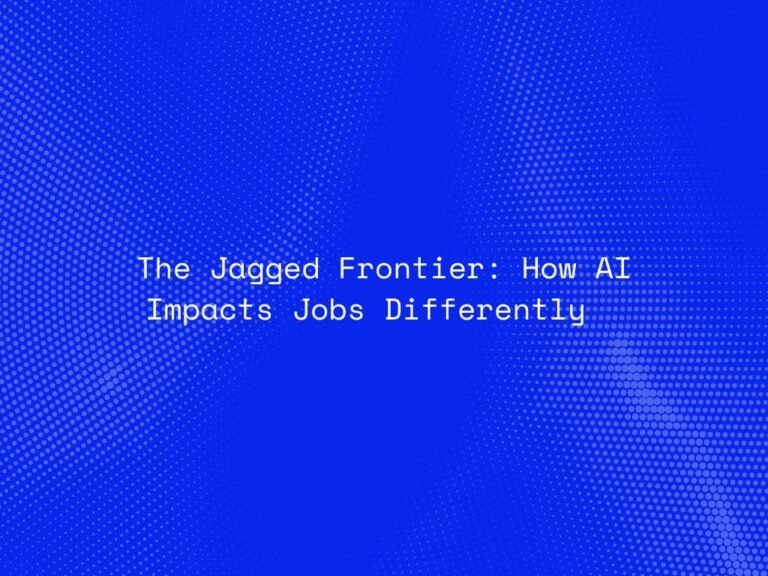In today’s hyper-connected digital landscape, personalization has become the cornerstone of successful marketing strategies. Consumers expect tailored experiences that resonate with their interests, preferences, and behaviors. To meet these expectations, marketers are increasingly turning to advanced technologies such as generative artificial intelligence (AI) to deliver next-level personalization. In this blog post, we’ll explore the pivotal role of generative AI in targeted marketing and how it is revolutionizing the way brands engage with their audiences.
Understanding Generative AI:
Generative AI is a subset of artificial intelligence that focuses on creating new content autonomously. Unlike traditional AI systems that are task-specific, generative AI models have the ability to generate diverse and realistic content across various domains, including images, text, and music. By analyzing patterns in data and learning from them, generative AI can produce content that exhibits creativity and originality, enabling marketers to deliver personalized experiences at scale.
Enhancing Personalization:
Generative AI empowers marketers to take personalization to the next level by creating tailored content and recommendations for individual users. By analyzing vast amounts of customer data, including browsing history, purchase behavior, and demographic information, generative AI algorithms can generate personalized product recommendations, targeted ads, and customized messages that resonate with each user. This level of personalization enhances engagement, drives conversions, and fosters brand loyalty.
Dynamic Content Creation:
Generative AI enables marketers to dynamically generate content in real-time based on user interactions and preferences. For example, e-commerce platforms can use generative AI to create personalized product descriptions and visuals for each user, showcasing items that align with their interests and preferences. Similarly, email marketing campaigns can leverage generative AI to generate dynamic email content that adapts to each recipient’s behavior and engagement level, increasing open and click-through rates.
Customized User Experiences:
Generative AI enables marketers to create customized user experiences across various touchpoints, from websites and mobile apps to social media platforms and beyond. By analyzing user interactions and preferences in real-time, generative AI algorithms can personalize the user interface, content recommendations, and messaging to create a seamless and engaging experience for each user. This level of customization fosters deeper connections with users and drives higher levels of engagement and conversion.
Predictive Personalization:
Generative AI can also predict user preferences and behaviors based on historical data and patterns. By analyzing past interactions and purchase history, generative AI algorithms can anticipate future needs and preferences, enabling marketers to proactively personalize content and recommendations for each user. This predictive personalization not only enhances the user experience but also drives customer satisfaction and loyalty over time.
Ethical Considerations:
As with any technology, the use of generative AI in targeted marketing raises important ethical considerations, including issues such as data privacy, transparency, and algorithmic bias. Marketers must ensure that they use generative AI responsibly and ethically, respecting user privacy and maintaining transparency in their use of AI-generated content. Additionally, marketers should be vigilant in addressing biases and ensuring that generative AI models produce fair and equitable outcomes for all users.
Conclusion:
Generative AI is revolutionizing targeted marketing by enabling next-level personalization that resonates with individual users on a deeper level. By leveraging advanced algorithms and vast datasets, marketers can create tailored content, recommendations, and user experiences that drive engagement, conversions, and brand loyalty. However, it is essential for marketers to approach the use of generative AI with caution, taking into account ethical considerations and ensuring responsible and ethical use of this transformative technology.




